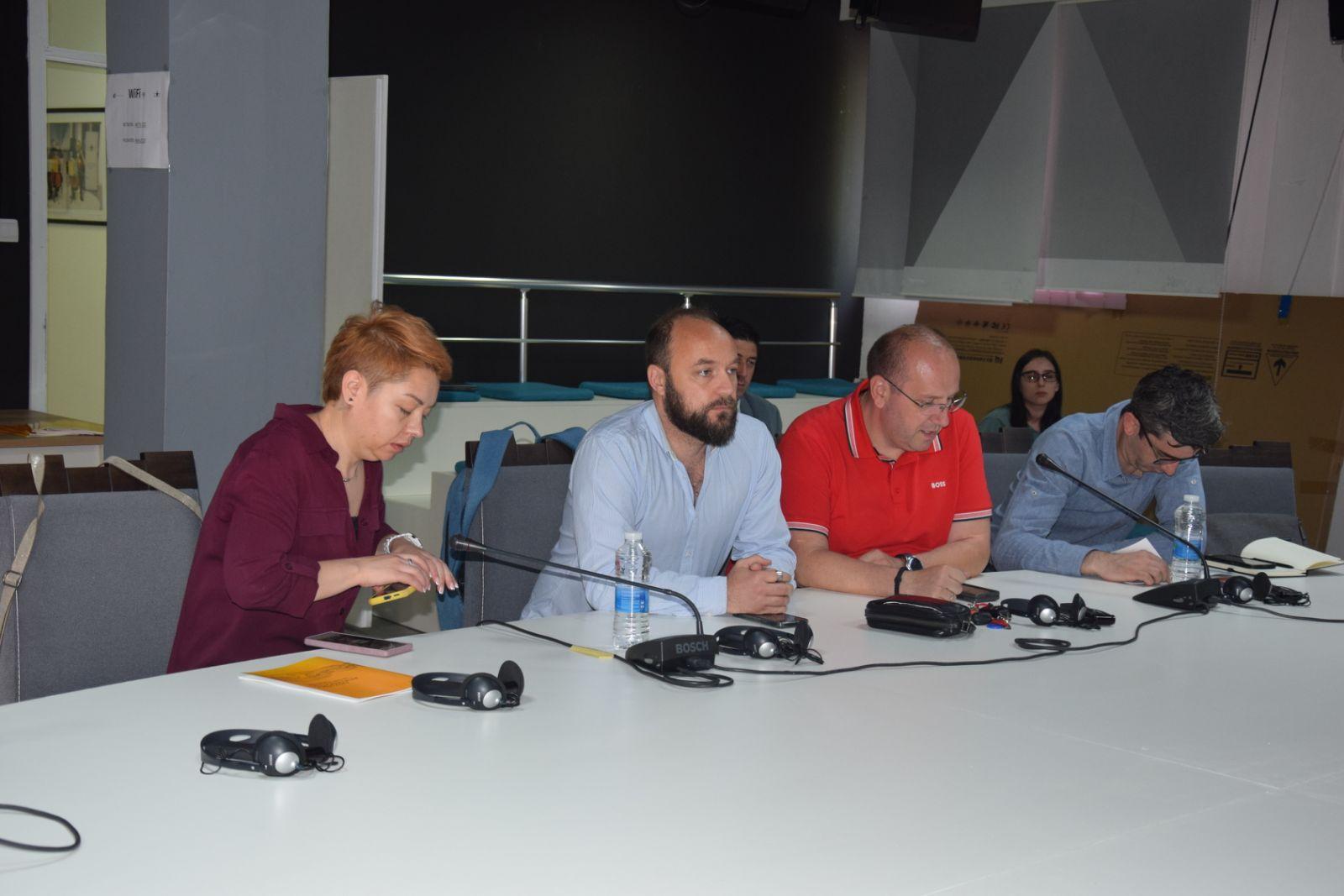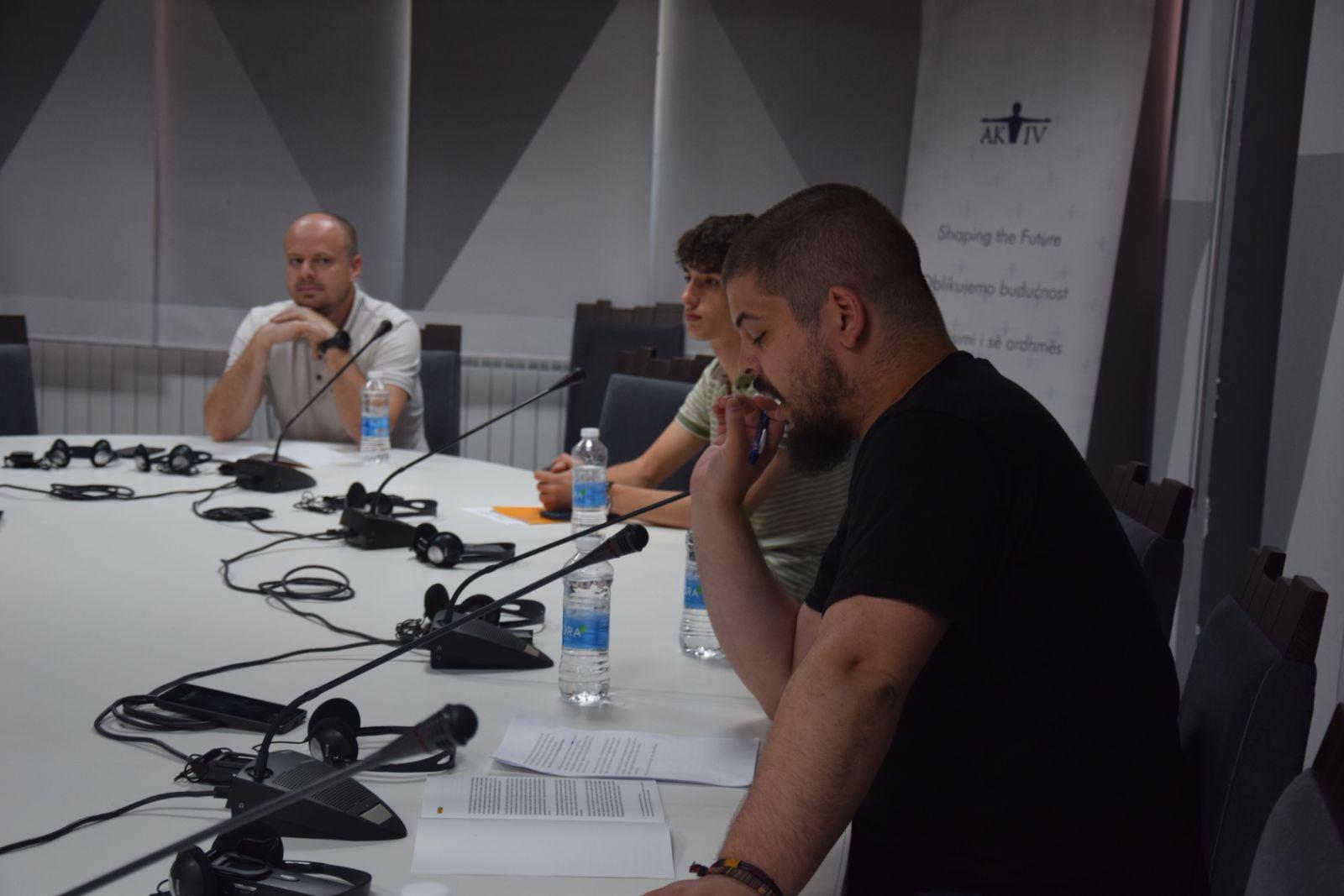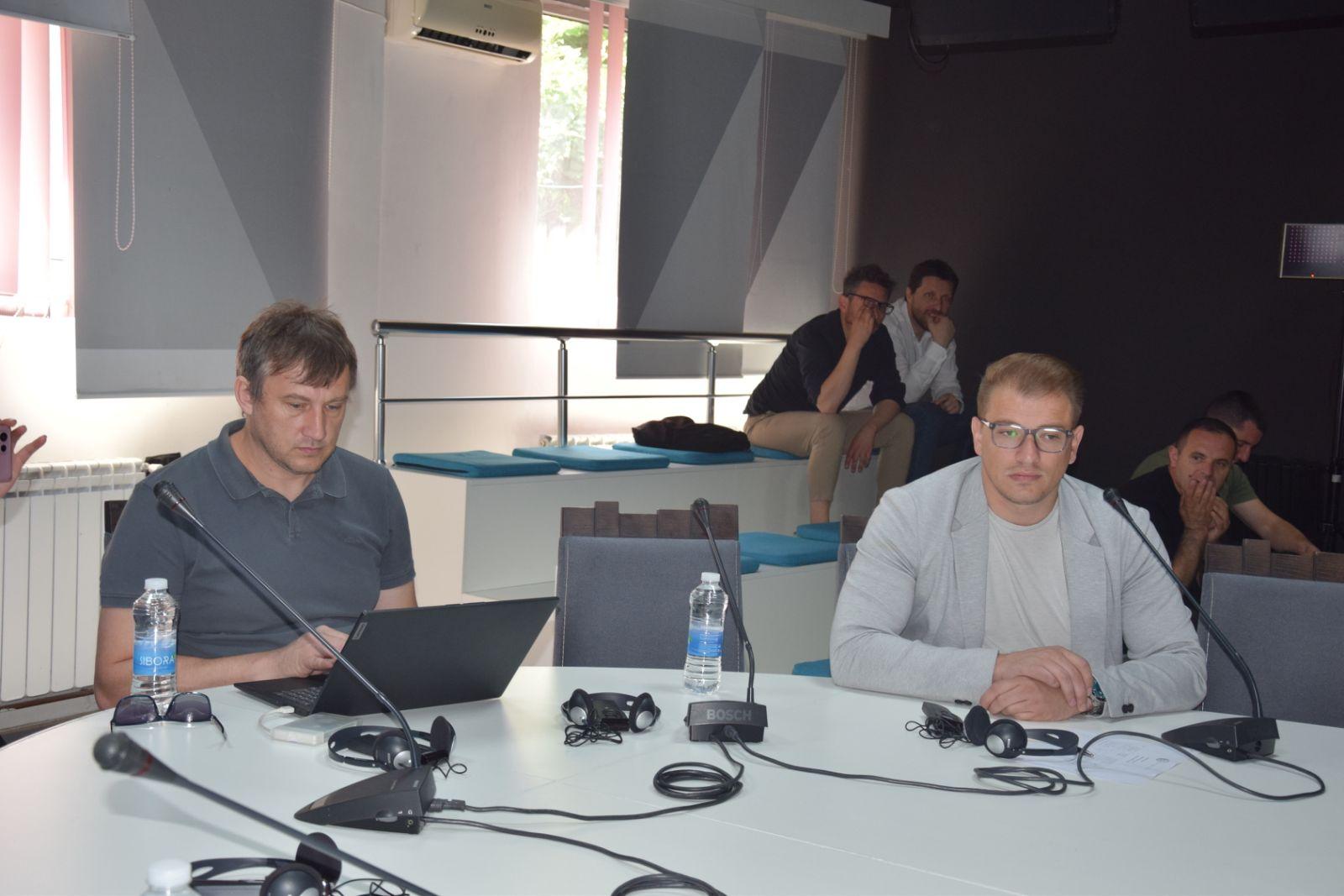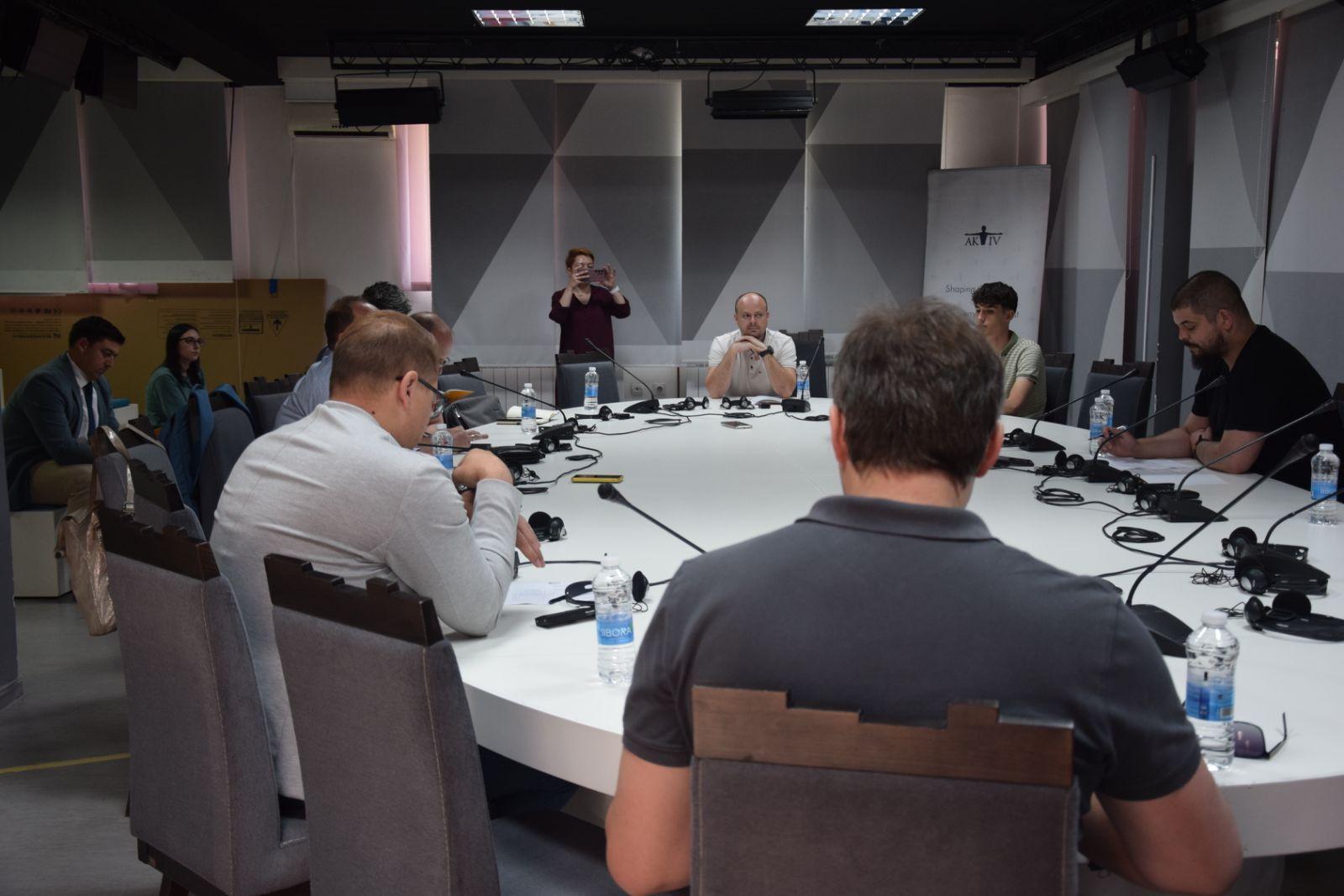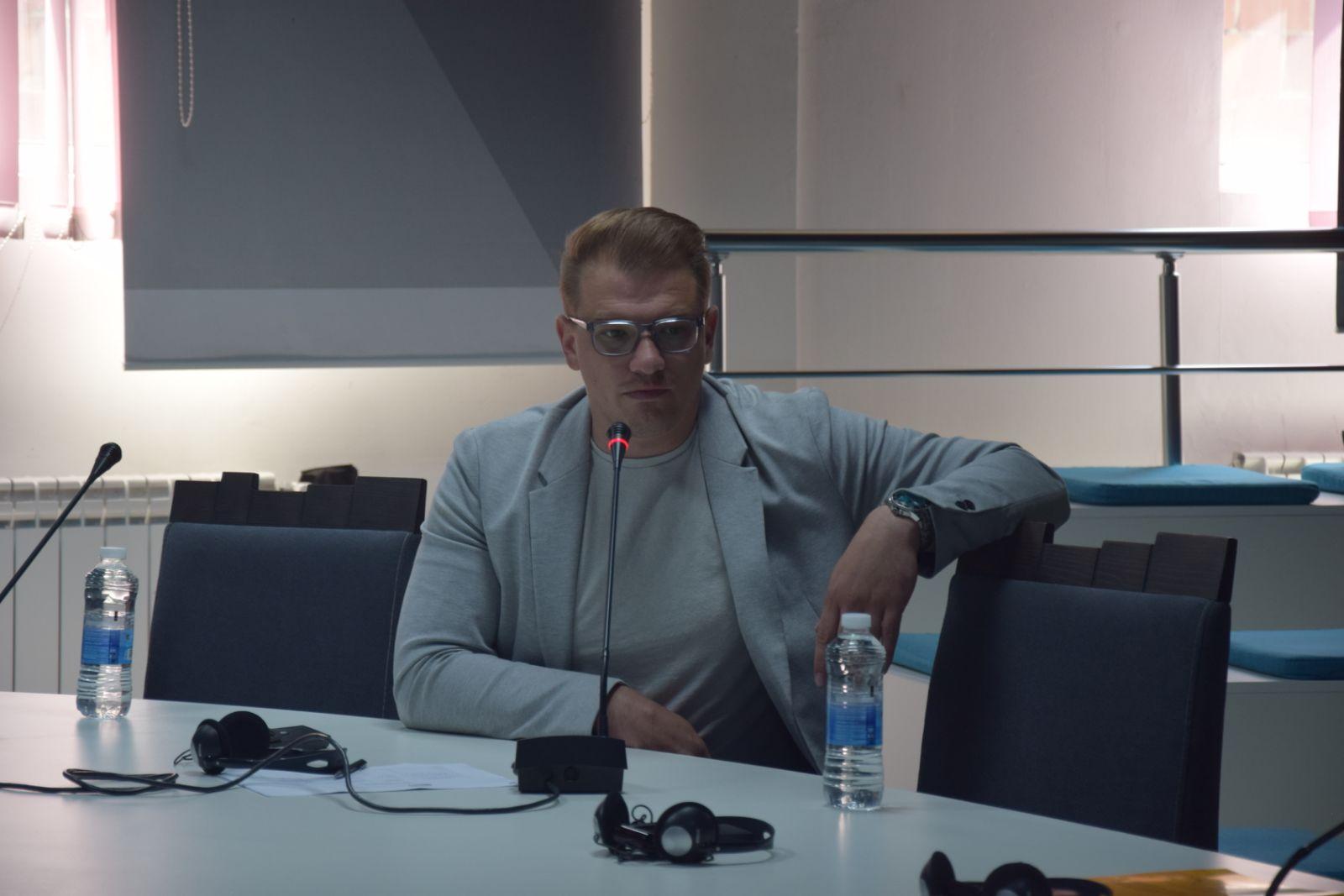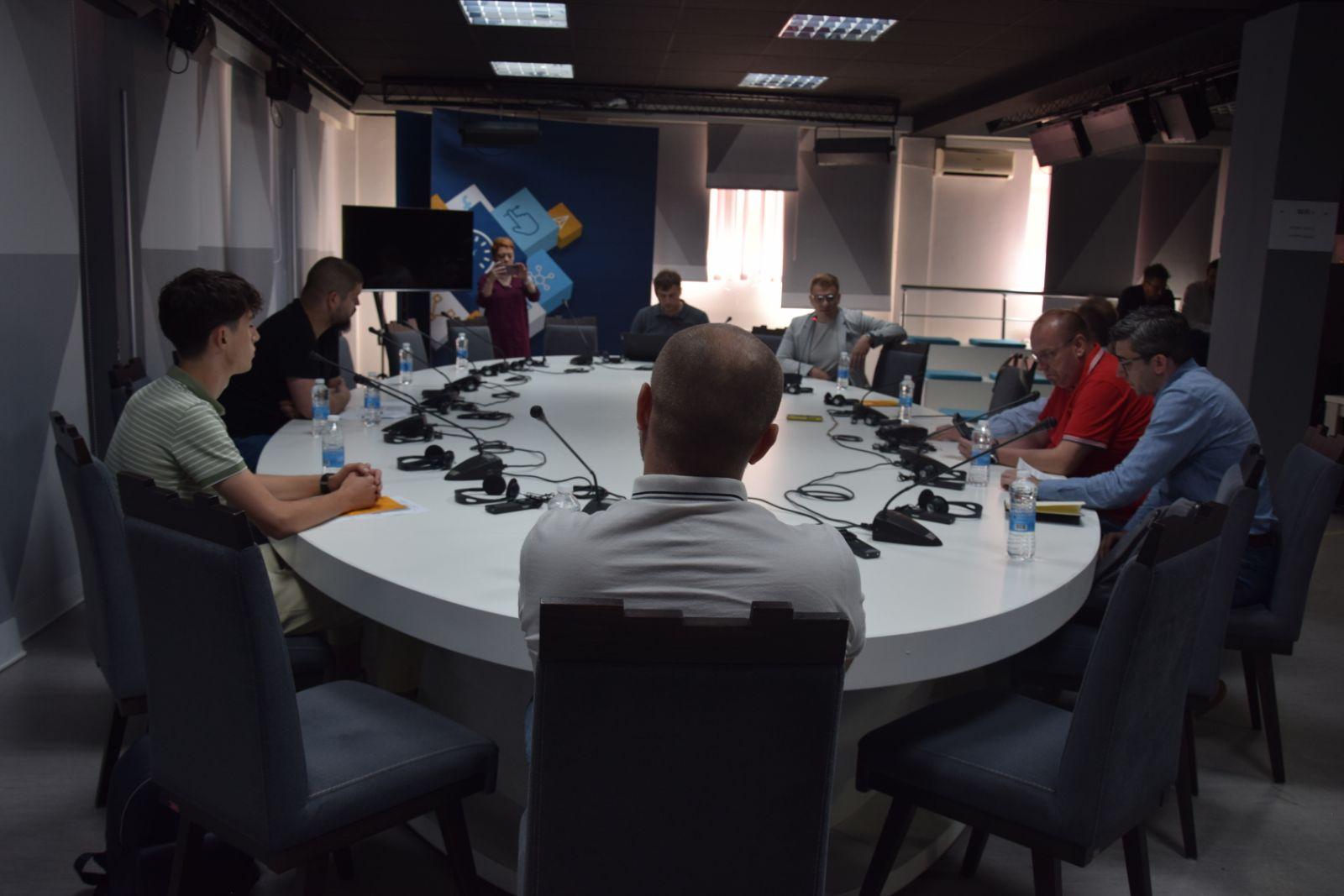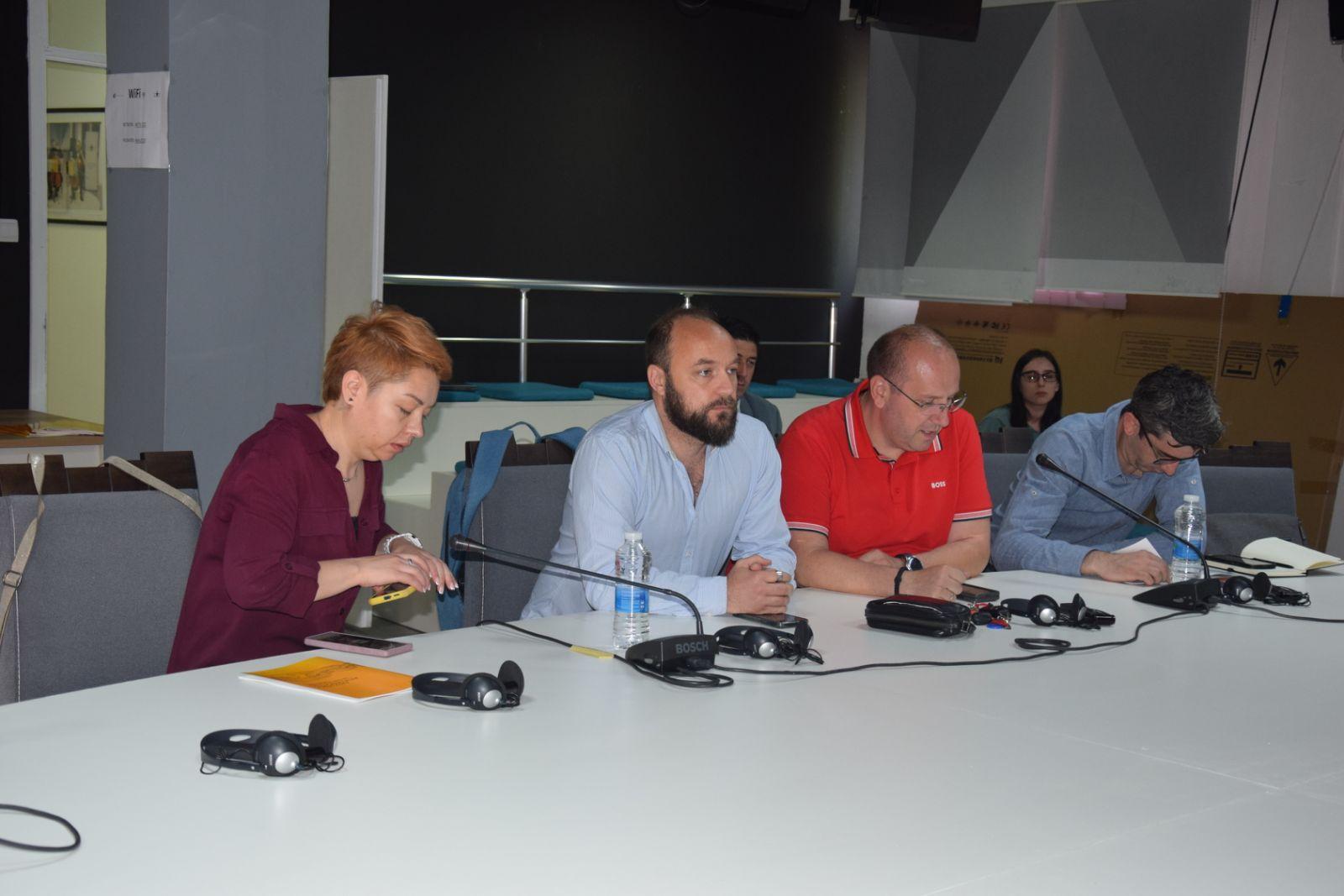On Tuesday, June 10, the non-governmental organization Aktiv presented its report titled “Substantive Reintegration – How to Avoid ‘Zombie Governance’ in the North of Kosovo” in North Mitrovica, with the aim of initiating a public discussion on institutional dysfunction, the crisis of citizen trust, and possible courses of action.
The report’s title is provocative, but according to the organizers, it accurately reflects the reality: institutions in northern Kosovo often exist only in form, without having any real impact on citizens’ lives, stated representatives of NGO Aktiv.
Dimitrije Obrenović, the project coordinator at NGO Aktiv, emphasized that “it is not disputed that institutions nominally exist, but citizens’ trust in them is almost nonexistent.” He added that it is legitimate to ask: “Do we have a functioning system, or just an empty shell?” According to him, the report offers more than just an analysis, it presents a set of concrete recommendations, clear warnings, and a call for partnership between local authorities, civil society, media, international actors, and most importantly, the citizens.
Participants in the event, representatives of civil society, the media, and local politicians, noted that citizens are increasingly losing trust in both local and central authorities, which they perceive as inefficient, disconnected, and politically instrumentalized.
They pointed out several key problems: the absence of functional local self-governance, lack of diploma recognition, institutional barriers to the employment of Serbs, and the ongoing practice of appointing politically affiliated staff. It was especially emphasized that local authorities lack real decision-making autonomy, while many competencies have been transferred to central institutions in Pristina.
“Substantial reintegration is not possible without political will, transparency, and a partnership-based relationship between local authorities, civil society, and citizens,” was one of the key messages of the event, with the assessment that the current institutional framework does not enable meaningful participation of the Serbian community.
The importance of deeply involving civil society organizations in decision-making processes was highlighted, as well as the need for continuous dialogue among all relevant actors, with international support grounded in responsibility and respect for the local context.
The report contains a series of concrete recommendations for improving the situation, including:
- conducting an inclusive population census;
- establishing a Development Fund for Northern Kosovo;
- clearly delineating competencies between North and South Mitrovica;
- employing qualified personnel through fair and transparent recruitment processes.
The aim of the report is to contribute to the opening of an inclusive dialogue on reintegration and the establishment of functional and legitimate local structures that serve the interests of all citizens.
The report was published within the framework of the project “Mitrovica Social Club: Perspectives on Rule of Law and Human Rights”, supported by the United Nations Mission in Kosovo (UNMIK).
The complete report is available HERE.

